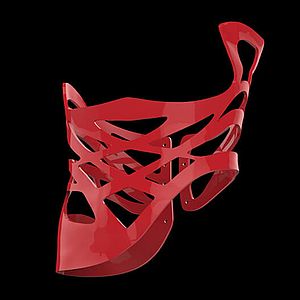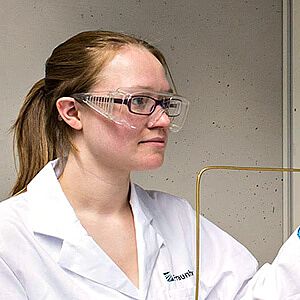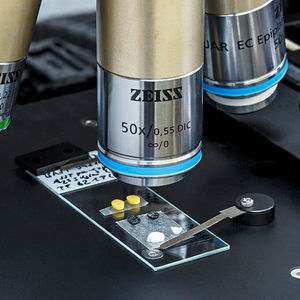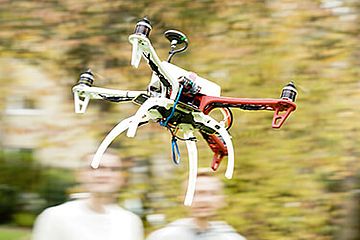Laser scanning provides insight into wafer-thin packaging films.
Packaging Damage Analysis, Raman-Spektroscopy
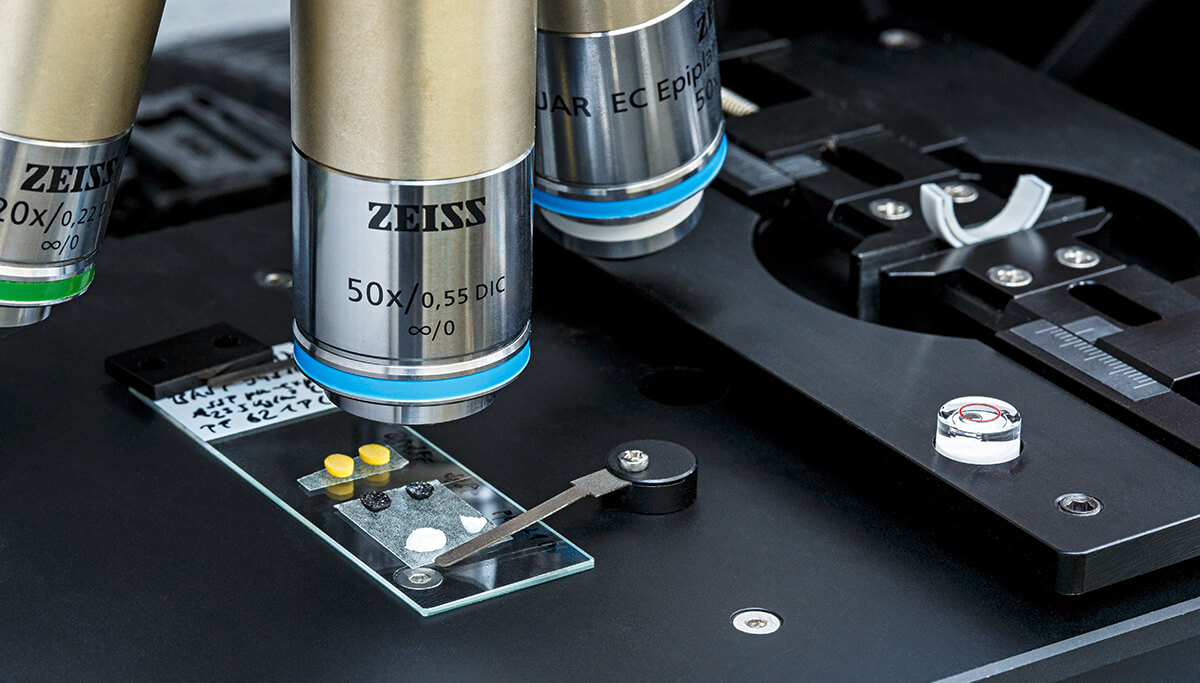
12,000,000 metric tons of plastic are wasted annually in Germany alone –- at least 6 percent of global demand – about 40 percent of which goes into packaging. Well over half of all goods produced are packed in plastic. Multi-layer films play an important role, especially in food.
These films, which are only approx. 1/10 mm thick, consist of five or more polymer layers, each ensuring the permeability of oxygen, aroma and water for example. Efficient production, disposal and utilization of the huge quantities of this complex material make high demands: optimum barrier properties for the consumer, minimum raw material consumption for the manufacturer and recyclability for the environment.
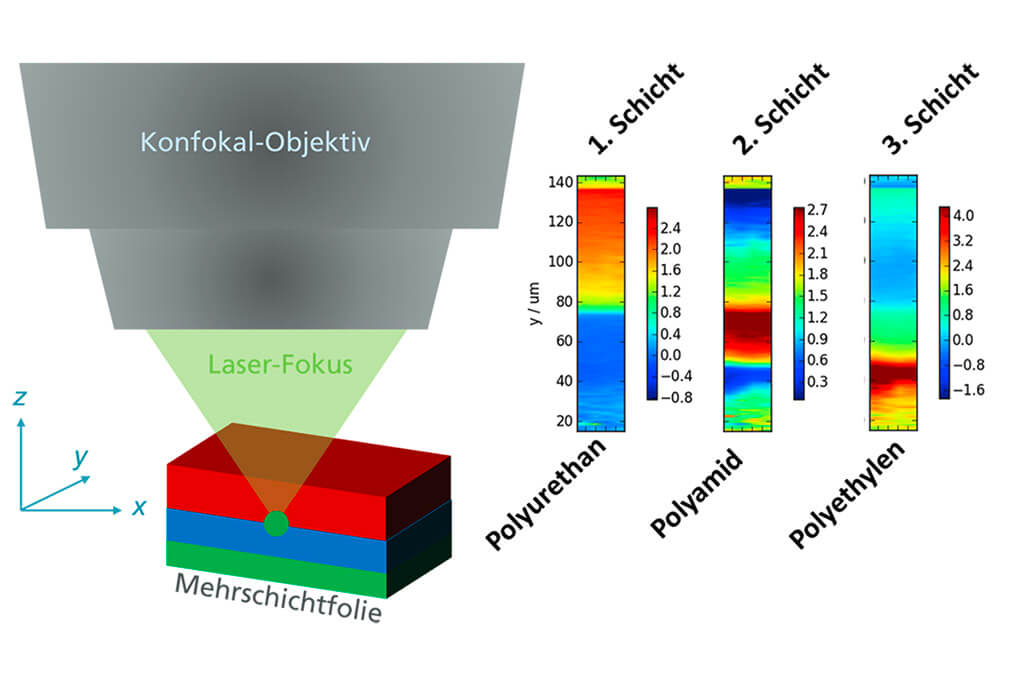
Scientists of the Material Analysis group in the plastics division at Fraunhofer LBF have now developed a method with which the structure of multilayer plastic films can be analyzed quickly and non-destructively with one thousandth of millimeter accuracy. The film is scanned with a laser using a confocal Raman microscope and measured up to 500,000 molecular spectra. From these, artificial intelligence is used to determine the structure and concentration of each plastic component at each point in the film. Damage and production defects can also be characterized in this way. The method, on the development of which a master’s thesis was written in the Department of Chemistry at the Technical University of Darmstadt, can also be applied to a large number of other industrial polymer composites.
Contact
- Dr. Bastian Barton
- Phone: +49 6151 705-8975
- bastian.barton@lbf.fraunhofer.de
